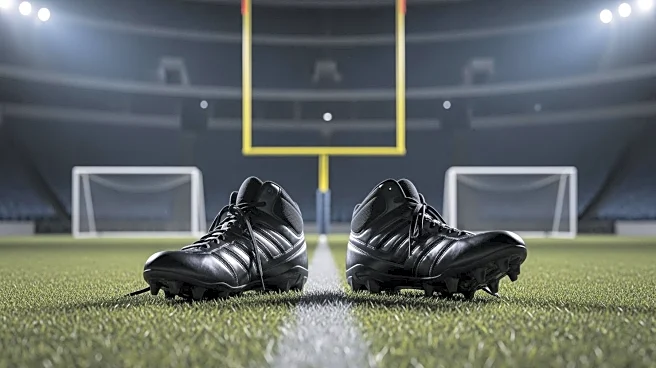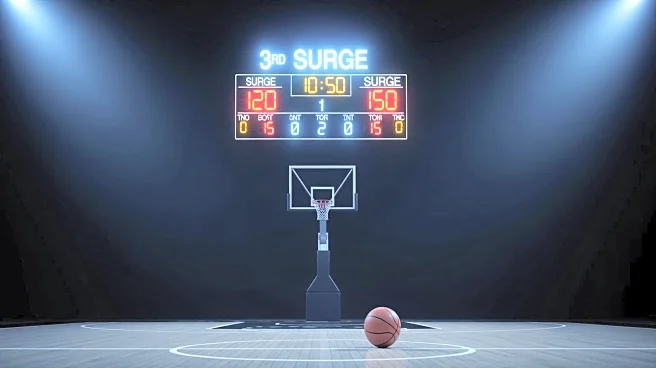What's Happening?
Lane Johnson, the All-Pro right tackle for the Philadelphia Eagles, sustained an ankle injury during the team's Week 10 game against the Green Bay Packers. Johnson, a key player in the Eagles' offensive
line, was injured in the second quarter when his leg was rolled up awkwardly. Initially, he was able to walk to the locker room, but was later seen riding in a cart. Despite being listed as questionable to return, Johnson managed to rejoin the game during a crucial drive late in the second half, helping the Eagles secure a win. Johnson's injury history includes multiple ankle injuries, making this latest setback a familiar challenge for the veteran player.
Why It's Important?
Lane Johnson's injury is significant for the Philadelphia Eagles, as he is a foundational piece of their offensive line, which is considered one of the best in the league. His ability to protect quarterback Jalen Hurts is crucial for the team's offensive success. The Eagles' playoff aspirations could be affected if Johnson's injury leads to extended time off the field, as his presence is vital for maintaining the line's effectiveness. The team's ability to adapt to his absence will be tested, potentially impacting their performance in upcoming games.
What's Next?
The Eagles will need to monitor Lane Johnson's recovery closely, as his ankle injury could affect his availability for future games. The team may have to consider alternative strategies or player rotations to compensate for his potential absence. Johnson's history of ankle injuries suggests that the team might need to be cautious in managing his return to avoid further complications. The Eagles' medical staff will likely conduct further evaluations to determine the best course of action for his rehabilitation.
Beyond the Headlines
Lane Johnson's recurring ankle injuries highlight the physical demands and risks associated with professional football, particularly for linemen who face constant physical strain. This situation underscores the importance of player health management and the potential long-term impacts of repeated injuries. The Eagles' handling of Johnson's recovery could set a precedent for how teams manage similar situations, balancing immediate performance needs with long-term player health.









